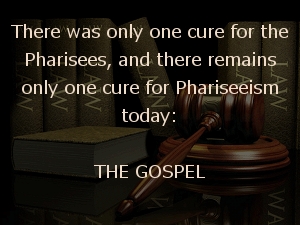In Defense of Rules, Part 1
 First posted October, 2009. Discussion here.
First posted October, 2009. Discussion here.
Fundamentalists and evangelicals of my generation are generally not fond of rules, especially in ministry settings. Exactly why this is the case is an interesting study in itself. In the case of fundamentalists, perhaps it’s due to the fact that many of them grew up in rules-heavy Christian schools in an era full of glowing idealism about what these highly-disciplined, conscientiously spiritual environments would produce. The inflated hopes of those days were sure to result in some disappointments. And maybe the current rules angst is the result of a generalized disgust with the whole concept and all that seems connected to it. In defense of those who feel this way, it is only too easy to find examples of rules excesses and absurdities.
Whatever the reasons, young fundamentalists are often eager to cast “man-made rules” in a negative light and to argue from Scripture that these rules are dangerous at best, and downright hostile to Christian growth at worst.
My aim here is to offer a perspective that differs from that of many of my peers, but one that I believe answers better to both Scripture and experience.
 Legalism and the Insecurity of Our Times
Legalism and the Insecurity of Our Times Read
Read  Read
Read  “Young Fundamentalists” are generally not fond of rules, especially in ministry settings. Exactly why this is the case is an interesting study in itself. Perhaps it’s due to the fact that many of them grew up in rules-heavy Christian schools in an era full of glowing idealism about what these highly-disciplined, conscientiously spiritual educational environments would produce. The inflated hopes of those days were sure to result in disappointment. And maybe the current rules angst is the result of a generalized disgust with the whole concept and all that seems connected to it. In defense of those who feel this way, it is only too easy to find examples of rules excesses and absurdities.
“Young Fundamentalists” are generally not fond of rules, especially in ministry settings. Exactly why this is the case is an interesting study in itself. Perhaps it’s due to the fact that many of them grew up in rules-heavy Christian schools in an era full of glowing idealism about what these highly-disciplined, conscientiously spiritual educational environments would produce. The inflated hopes of those days were sure to result in disappointment. And maybe the current rules angst is the result of a generalized disgust with the whole concept and all that seems connected to it. In defense of those who feel this way, it is only too easy to find examples of rules excesses and absurdities. Note: Reading
Note: Reading 
Discussion